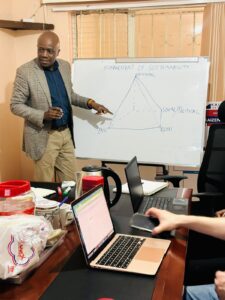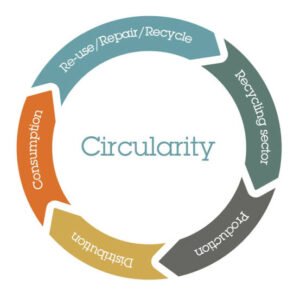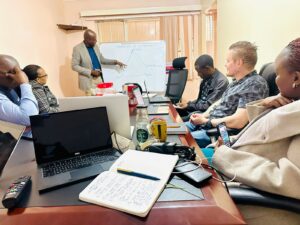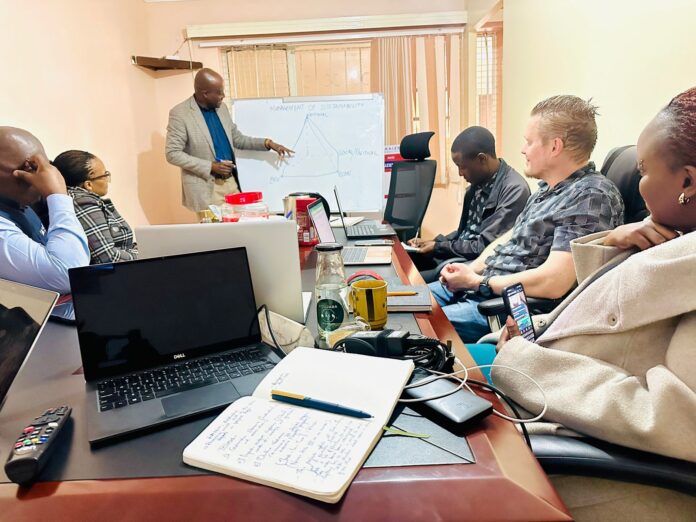By Horizon News Reporter
Embracing circularity in business has significant impacts on Kenya’s economy and environment.
1. Economic Growth: Transitioning to a circular economy could increase Kenya’s GDP by 0.5% by 2030, generating approximately 46,000 new jobs, particularly in sectors like manufacturing and waste management.
2.Resource Efficiency: Businesses are encouraged to optimize resource use, minimize waste, and design products for durability, which leads to lower operational costs and enhanced resilience against economic shocks

3. Innovation and Entrepreneurship: Circular principles foster innovation, especially among SMEs, enabling them to develop new products and services that address local challenges while creating job opportunities
4. Environmental Benefits: The shift reduces carbon emissions and promotes sustainable practices, contributing to environmental conservation and compliance with regulations like the ban on single-use plastics
Circularity presents a pathway for sustainable economic development in Kenya.
Ivory Consult Limited Group and Ivory Engineering Technologies Ltd CEO Clive Wafukho, has emerged as a pivotal figure in promoting circularity in Kenya, in the region and on the continent, advocating for sustainable business practices that align with the principles of the circular economy.

His efforts include collaborating with organizations like the Kenya Association of Manufacturers (KAM) to facilitate dialogues and initiatives aimed at transitioning from a linear to a circular economy.
Mr. Wafukho’s influence is evident in various sectors, where he encourages design for longevity, resource efficiency, and waste reduction strategies.
He actively participates in forums that showcase innovative circular solutions, helping businesses understand the economic benefits of adopting circular practices. His work not only raises awareness but also fosters partnerships that drive policy changes essential for a sustainable future in Kenya.
Together with a few others, over 20 years ago, Mr Wafukho founded the Africa Roundtable on Sustainable Consumption, plays a crucial role in promoting sustainable practices across the African continent and Production and the Africa Life Cycle Analysis Network , ALCANET, which plays a vital role in promoting sustainable practices across the continent by facilitating the use of Life Cycle Assessment (LCA) methodologies.

He has also been actively working to preserve the genome materials of indigenous foods and traditional medicinal plants.



